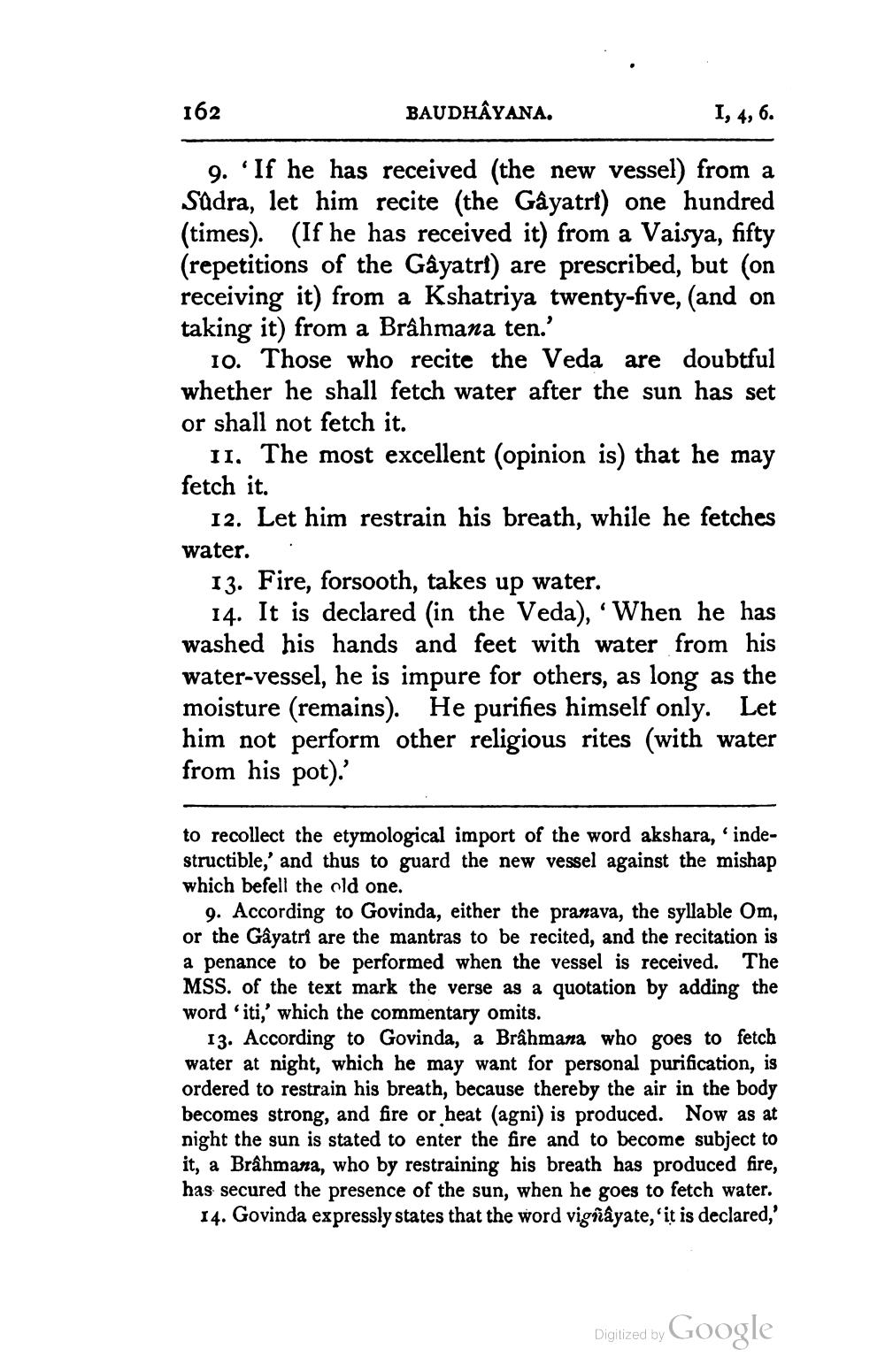________________
162
BAUDHẦYANA.
I, 4, 6.
9. 'If he has received (the new vessel) from a Sudra, let him recite (the Gayatrt) one hundred (times). (If he has received it) from a Vaisya, fifty (repetitions of the Gâyatrt) are prescribed, but (on receiving it) from a Kshatriya twenty-five, (and on taking it) from a Brâhmana ten.'
10. Those who recite the Veda are doubtful whether he shall fetch water after the sun has set or shall not fetch it.
11. The most excellent (opinion is) that he may fetch it.
12. Let him restrain his breath, while he fetches water. .
13. Fire, forsooth, takes up water.
14. It is declared (in the Veda), 'When he has washed his hands and feet with water from his water-vessel, he is impure for others, as long as the moisture (remains). He purifies himself only. Let him not perform other religious rites (with water from his pot).'
to recollect the etymological import of the word akshara, 'indestructible,' and thus to guard the new vessel against the mishap which befell the old one.
9. According to Govinda, either the pranava, the syllable Om, or the Gayatri are the mantras to be recited, and the recitation is a penance to be performed when the vessel is received. The MSS. of the text mark the verse as a quotation by adding the word 'iti,' which the commentary omits.
13. According to Govinda, a Brahmana who goes to fetch water at night, which he may want for personal purification, is ordered to restrain his breath, because thereby the air in the body becomes strong, and fire or heat (agni) is produced. Now as at night the sun is stated to enter the fire and to become subject to it, a Brâhmana, who by restraining his breath has produced fire, has secured the presence of the sun, when he goes to fetch water.
14. Govinda expressly states that the word vigñayate, it is declared,'
Digitized by Google




